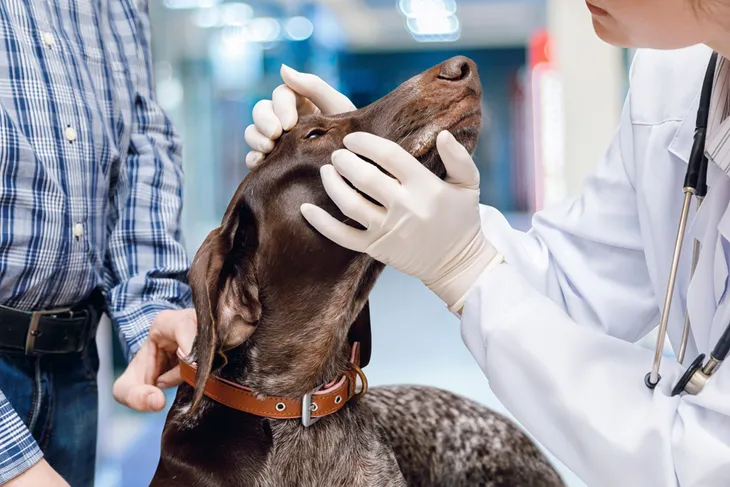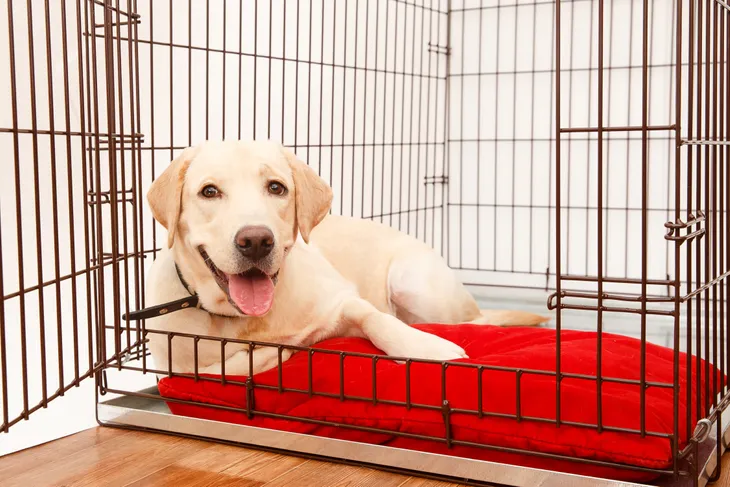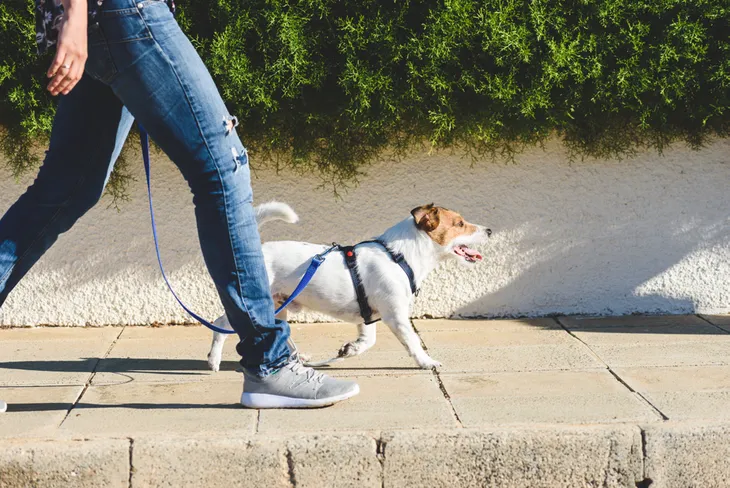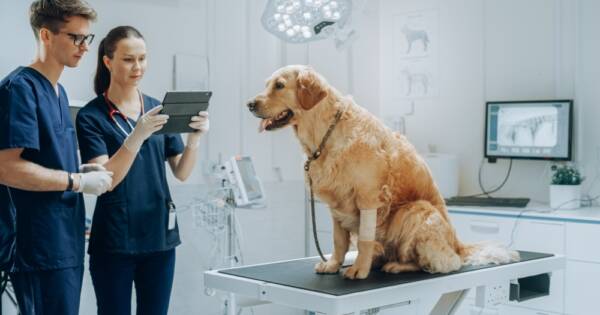- A dog into the home is exciting and rewarding, but comes with extra responsibilities, expenses and considerations.
- New dog owners should consider factors such as breed, whether to adopt from a shelter or buy a puppy from a breeder and which training services to use.
- Dogs need a variety of supplies for when they arrive home, including a crate, food, treats and toys.
Bringing a dog home is an exciting and rewarding decision, but it comes with significant responsibility and change. Dogs need a lot of care and attention to live a happy, healthy life, including vet visits, quality food and careful training, which is why it’s important to understand as much as possible about the adoption process.
To prepare yourself and your home for your canine companion, read on to learn about everything you need to do before adopting a dog.
Choose a Breed or Characteristics
Dogs come in all shapes, sizes and personalities, and many things go into choosing your preferred breed or mixed breed/mutt. Consider factors such as:
- Age: A puppy, an adolescent and an adult dog all have different challenges and benefits, but getting a dog at any age can be rewarding.
- Activity level: High-energy dogs are usually best suited to large homes and active owners. High energy dogs can be a lot of fun, but they need extensive exercise even on days when you don’t feel like it. Dogs who aren’t exercised enough may start to show undesirable behaviours over time, such as chewing, digging, barking and jumping.
- Intelligence: Some breeds are better known for intelligence or certain skills.
- Working or companion: Certain breeds are classified as working breeds, which means they have been genetically bred over time to perform a certain job. If you are unable to give a working breed dog a job, they are likely to become unfulfilled and start to show undesirable behaviours. A companion breed, on the other hand, has been bred to be just that.
- Special care or needs: Certain breeds may have a genetic predisposition to health or care issues. For example, if you knowingly purchase a breed of dog that is prone to hip dysplasia and often needs hip surgery during their lifetime, this is a cost you should be prepared for.
- Disposition: Some breeds are known to be aloof, while others are more prone to separation anxiety.
- Coat: People with allergies may prefer dogs with short or hypoallergenic coats. Others may not have a preference or be just fine with a dog that sheds a lot!
- Size: Some small breeds do better in small spaces, though there are large breeds that will do just fine in an apartment or condo, provided they get enough exercise.
- Family-friendly: Some breeds tend to have more patience with children than others, making them good family dogs. Regardless of the breed you choose, it’s important to teach children to respect and know how to properly interact with dogs.
Consider Your Schedule and Obligations
Some dog breeds have an average life span as high as 18 years, and they all need plenty of time and attention from their owners throughout their lives. Before committing to a pet, ensure your schedule and obligations allow ample time to care for them. Consider aspects such as work, family obligations, social occasions or travel plans and how a dog fits into your lifestyle. This is even more important if you’re thinking about getting a puppy, as they can only hold their bladder for about an hour per month old they are.
You may also want to consider how you and anyone you live with would handle potential situations that arise in the future. For example, would you be willing to pay a dog walker to come everyday if you took a new job that had you away from home for longer?
Consider long-term plans as well, such as:
- Having children
- Moving to different areas or pet-friendly homes
- Living with a partner
- Career changes
When you commit to getting a dog, you should be committing to them for the entirety of their life. That takes some planning!
Breeder vs. Shelter
A happy, healthy dog can come from a shelter or a breeder, but each option carries certain pros and cons.
For example, rescues and humane societies help find homes for dogs in need and have a broad range of dogs available in terms of size, age and other characteristics. Most shelters are also nonprofit and consequently have cheaper adoption fees than breeders. However, adopting a rescue dog comes with the risk of behavioral issues as a result of neglect or abuse.
In comparison, responsible breeders are specialists in raising specific breeds. They carefully raise healthy and well-socialized puppies and provide detailed information on your dog’s background and medical history, as well as that of their parents. Keep in mind that breeder fees are significantly higher than shelter adoption fees.
Avoid getting a dog from a backyard breeder or puppy mill, which both have ethical issues as well as practical ones. Both contribute to the irresponsible breeding of dogs and tend to prioritize profit over canine welfare, but are sadly very common. Puppies from their situations may have severe health problems such as parvovirus and genetic issues from inbreeding.
Organize Your Finances
Dogs carry many expenses beyond adoption or purchase fees, and it’s important to organize your finances to ensure your savings and budget have enough room. Some one-time costs associated with dog ownership include:
- Spay or neuter fees
- Puppy immunizations
- Puppy or beginner training classes
- Start-up supplies, such as toys, beds, bowls, a crate, leash/collar, etc.
Some monthly costs associated with dog ownership include:
- Food
- Treats
- Grooming and nail trims
- Waste bags
- Ongoing pet supplies
- Pet insurance
- Dog walking or daycare
Some annual costs associated with dog ownership include:
- Immunizations
- Medications, such as annual flea and tick prevention
- Annual vet checkups
- Training
- Boarding, if you plan to travel
The costs of dog ownership can vary a lot depending on your individual lifestyle and dog, as well as where you live. Surveys show that U.S. dog owners spend between $40 and $290 per month on pet care. Those costs don’t include unexpected vet bills or emergencies. If you’re concerned, consider putting together an estimate of costs by going to your local pet store and calling around to grooming salons and vet clinics.
Look Into Fostering
Many shelters foster out dogs due to issues such as overcrowding, socialization needs or extra medical care, and fostering is a great way to get hands-on experience if you’re unsure about the commitment of a dog. As a volunteer dog foster parent, you provide a safe home environment and are responsible for supporting training needs, meeting with potential adopters and communicating with the shelter. The rescue or shelter pays for their care, vet bills and food though, reducing the financial commitment for you.
By fostering a dog, you gain valuable practice to see how a dog fits into your home and impacts your daily life. If you have children or other pets, fostering allows you to see how they react to having a new animal in the home. If you’re lucky, you may even end up adopting a dog you foster, which is known as a “foster fail”.
Create a Pet-Friendly Space
Once you’ve decided to get a dog, you need to make a place where it can feel safe and comfortable. Place a crate or bed in a designated space and include a variety of toys, pillows and blankets. If your dog struggles to get comfortable in its place, try guiding them to the area and rewarding them with treats or placing an appealing bone or treat on its bed to help create a positive association.
Likewise, create a designated meal station for your dog. This can mean simple food and water bowls or a special elevated feeding table.
Pet-Proof Your Home
Puppies and dogs can be curious, especially in a new home. Pet proofing your home helps ensure your dog stays out of unsafe areas and doesn’t damage anything as it adjusts to the rules of your home.
Pet proofing can include:
- Installing child-proof latches on cabinets
- Covering or securing trash cans
- Putting food out of reach
- Removing poisonous house plants
- Keeping shoes and clothing in closets
- Installing a baby gate near stairs
- Placing wires and electronics out of reach
Get Pet Supplies
Your dog needs a variety of supplies and accessories as it adjusts to its new home. The essentials for a new dog are:
- Food
- Identification tag
- Collar, harness and leash
- Crate or dog bed
- Washable dog bowls
- Grooming and cleaning supplies
- Waste bags
Most dogs enjoy and benefit from various toys that allow them to chew, tug and exercise. Small treats can also help incentivize training and obedience, and Kongs or chew toys can help keep restless dogs occupied.
Find a Veterinarian
In addition to several immunizations and checkups as puppies, dogs need a variety of veterinarian services throughout their lives. To find a reputable vet before you take your new dog home, start by researching online and asking friends and family about their experiences.
Arrange to visit veterinarians you’re interested in and come prepared with questions about:
- Office hours and availability
- Protocols in case of emergencies
- Imaging and testing services available on-site
- Insurance options
- Dental care options
- Fees
Just like a family doctor, a vet is a personal choice that should fit you and your dog’s needs. Don’t hesitate to shop around until you find one that meets your expectations.
Look Into Pet Insurance
Although not all dog owners opt for pet insurance, it’s a reliable way to protect yourself and your pet from unexpected veterinary bills. It’s impossible to anticipate when your dog will eat something it’s not supposed to, get hurt or be diagnosed with a serious illness. Pet insurance allows you to cover medical expenses without financial burden.
Many pet insurance options are available, with variable premiums depending on your dog, policy details and any discounts you qualify for. Pet insurance doesn’t generally pay for routine expenses but usually covers:
- Chronic disease
- Unexpected illness
- Injuries
- Surgery
- Prescription medications
- Diagnostic testing
- Dental illness
Find a Dog Trainer
Many people wait to find a dog trainer until their dogs exhibit behavioral issues, but starting training as soon as you bring your dog home can make the transition smoother and lead to a stronger owner-pet relationship. Training promotes good behavior at home and in public, as well as communication between you and your dog, leading to a relationship of trust and respect. By training your dog throughout its lifetime, you can help keep them active and mentally engaged.
To find a dog trainer who matches your dog’s needs, carefully consider trainers’ various methods and philosophies. Determine if you need to focus on basic behavioral training or if you have more advanced needs.
Be Ready to Learn
Adopting a dog is a deep commitment that requires ongoing learning from both you and your pet. Just like being a parent, pet ownership inevitably comes with mistakes and mishaps, and learning and growing through this process is one of the most rewarding experiences you can have.
Since you can’t predict what your experience will look like, be open to anything that may happen to take advantage of all the benefits of owning a dog.















